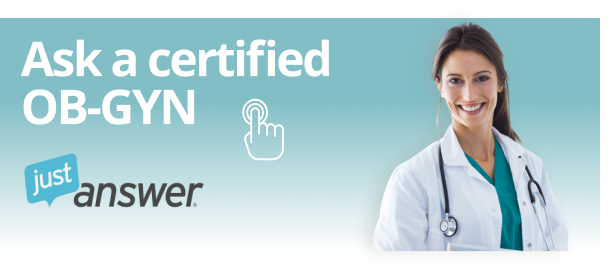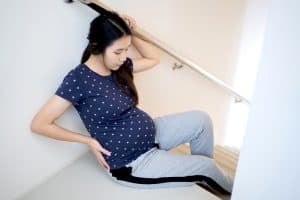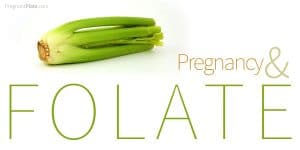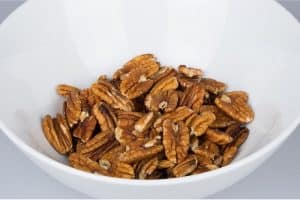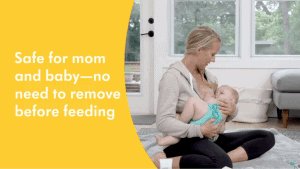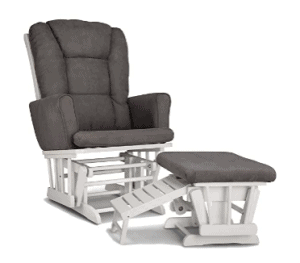Information for pregnant women and their care-takers
Key Points
- Pregnant women do not appear to be more susceptible to the consequences of coronavirus than the general population and there is no evidence that the virus can pass to a baby during pregnancy
- As a precautionary approach, pregnant women with suspected or confirmed coronavirus when they go into labour are being advised to attend an obstetric unit for birth but their birth plan should be followed as closely as possible
- At the moment there is no evidence that the virus can be carried in breastmilk, so it is felt the benefits of breastfeeding outweigh any potential risks of transmission of coronavirus through breastmilk
Guidance for healthcare professionals on managing coronavirus (COVID-19) infection in pregnancy has been published by the Royal College of Obstetricians and Gynaecologists, Royal College of Midwives and Royal College of Paediatrics and Child Health, with input from the Royal College of Anaesthetists, Public Health England and Health Protection Scotland.
What effect does coronavirus have on pregnant women?
- Pregnant women do not appear to be more susceptible to the consequences of coronavirus than the general population.
- It is expected the large majority of pregnant women will experience only mild or moderate cold/flu like symptoms.
- More severe symptoms such as pneumonia appear to be more common in older people, those with weakened immune systems or long-term conditions.
- There are no reported deaths of pregnant women from coronavirus at the moment.
- If you are pregnant you are more vulnerable to getting infections than a woman who is not pregnant. If you have an underlying heart or lung condition, such as asthma, you may be more unwell if you have coronavirus.
What effect will coronavirus have on my baby if I am diagnosed with the infection?
- There is no evidence to suggest an increased risk of miscarriage. There is also no evidence that the virus can pass to your developing baby while you are pregnant (this is called vertical transmission). It is therefore considered unlikely that if you have the virus it will cause abnormalities in your baby. As this is a very new virus we are just beginning to learn about it.
What can I do to reduce my risk of catching coronavirus?
- The most important thing to do is to wash your hands regularly and effectively as soon as you come from public places to your home or workplace. There is useful advice on the NHS website on the best way to reduce any infection risk, not just for coronavirus, but for other things like colds and flu.
What is the travel advice if I am pregnant?
- All individuals, including pregnant women, should ensure they have adequate insurance arrangements prior to travel. You should also check that your travel insurance will provide cover for birth and care of your newborn baby if you give birth while abroad.
What should I do if I think I may have coronavirus or been exposed?
If you are pregnant and:
- You think you might have coronavirus
- In the last 14 days you’ve been to a country or area with a high risk of coronavirus – see the UK coronavirus advice for travellers
- You’ve been in close contact with someone with coronavirus
You should phone your local medical authority for further advice, and say you are pregnant.
How will I be tested for coronavirus?
- The process for diagnosing coronavirus infection is changing rapidly. At the current time, if you need a test for coronavirus, you will be advised to self-isolate and diagnostic swabs will be arranged. You may need to attend a hospital, or be tested at home.
- You will be tested in the same way as anyone being tested, regardless of the fact that you are pregnant. Currently, the test involves swabs being taken from your mouth and nose. You may also be asked to cough up sputum, a mixture of saliva and mucous.
What should I do if I test positive for coronavirus?
If you test positive for coronavirus, you should contact your midwife or antenatal team to make them aware of your diagnosis. If you have no symptoms, or mild symptoms, you will be advised to recover at home. If you have more severe symptoms, you might be treated in a hospital setting.
Q. Why would I be asked to self-isolate?
You may be advised to self-isolate because:
- You have come into contact with someone who has coronavirus
- You have visited a particular area or country with a high-risk of coronavirus
- You have symptoms suggestive of coronavirus and are waiting to be tested, or for your results
- You have tested positive for coronavirus and you’ve been advised to recover at home
What should I do if I’m asked to self-isolate?
Pregnant women who have been advised to self-isolate should stay indoors and avoid contact with others for 14 days. The NHS guidance on self-isolation currently recommends people should:
- Not go to school, work, NHS settings or public areas
- Not use public transport
- Stay at home and not allow visitors
- Ventilate the rooms where they are by opening a window
- Separate themselves from other members of their household as far as possible, using their own towels, crockery and utensils and eating at different times
- Use friends, family or delivery services to run errands, but advise them to leave items outside.
- You may wish to consider online fitness routines to keep active, such as pregnancy yoga or Pilates.
Can I still attend my antenatal appointments if I am in self-isolation?
- You should contact your midwife or antenatal clinic to inform them that you are currently in self-isolation for possible/confirmed coronavirus and request advice on attending routine antenatal appointments.
- It is likely that routine antenatal appointments will be delayed until isolation ends. If your midwife or doctor advises that your appointment cannot wait, the necessary arrangements will be made for you to be seen. For example, you may be asked to attend at a different time, or in a different clinic, to protect other patients.
How will my care be managed after I have recovered from coronavirus?
As a precautionary approach, an ultrasound scan will be arranged 14 days after your recovery, to check that your baby is well. This 14 day period may be reduced as more information on how infected people are in recovery becomes available.
If you have recovered from coronavirus and tested negative for the virus before you go into labour, where and how you give birth will not be affected by your previous illness.
What do I do if I feel unwell or I’m worried about my baby during self-isolation?
Pregnant women are advised not to attend maternity triage units or A&E unless in need of urgent pregnancy or medical care.
If you have concerns about the wellbeing of yourself or your unborn baby during your self-isolation period, contact your midwife, or out-of-hours, your maternity team. They will provide further advice, including whether you need to attend hospital.
If attendance at the maternity unit or hospital is advised, pregnant women are requested to travel by private transport, or arrange hospital transport, and alert the maternity triage reception once on the premises, prior to entering the hospital.
Could I pass coronavirus to my baby?
As this is a new virus, there is limited evidence about managing women with coronavirus infection in women who have just given birth; however, there are no reports of women diagnosed with coronavirus during the third trimester of pregnancy having passed the virus to their babies while in the womb.
Will my baby be tested for coronavirus?
Yes, if you have suspected or confirmed coronavirus at the time your baby is born, your baby will be tested for coronavirus.
Will I be able to breastfeed my baby?
Yes. At the moment there is no evidence that the virus can be carried in breastmilk, so it’s felt that the well-recognised benefits of breastfeeding outweigh any potential risks of transmission of coronavirus through breastmilk.
The main risk of breastfeeding is close contact between you and your baby, as you may share infective airborne droplets, leading to infection of the baby after birth.
A discussion about the risks and benefits of breastfeeding should take place between you and your family and your maternity team.
This guidance may change as knowledge evolves.
If you choose to breastfeed your baby, the following precautions are recommended:
- Wash your hands before touching your baby, breast pump or bottles
- Wear a face-mask for feeding at the breast
- Follow recommendations for pump cleaning after each use
- Consider asking someone who is well to feed expressed breast milk to your baby.
If you choose to feed your baby with formula or expressed milk, it is recommend that you follow strict adherence to sterilisation guidelines. If you are expressing breast milk in hospital, a dedicated breast pump should be used.
More information and Sources
https://www.cdc.gov/coronavirus/2019-ncov/specific-groups/pregnancy-faq.html
https://www.uchealth.org/today/pregnancy-and-coronavirus-experts-advise-precautions/
https://obgyn.onlinelibrary.wiley.com/doi/10.1002/uog.22006
https://www.nytimes.com/2020/03/03/health/coronavirus-pregnant-women-babies.html
